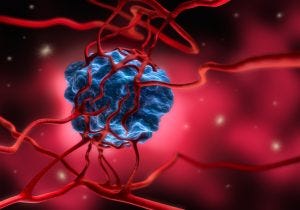June 21, 2021

Eisai and Bristol-Myers Squibb (BMS) will co-develop and manufacture MORAb-202, an antibody-drug conjugate treatment for endometrial, ovarian, lung and breast cancers.
Under the deal Eisai and BMS will develop and commercialize MORAb-202 in Japan, China and the wider Asia-Pacific region, the US, Canada, the EU the UK and Russia. BMS will develop and commercialize the drug elsewhere.
Eisai will remain responsible for the manufacturing and supply of the product globally.

Image: iStock/peterschreiber.media
BMS will pay $650 million to Eisai including $200 million for research and development expenses. Eisai is also entitled to receive up to $2.45 billion in future development, regulatory, and commercial milestones.
The firms will share profits, research and development and commercialization costs in the collaboration territories and BMS will pay Eisai a royalty on sales elsewhere.
MORAb-202 is Eisai’s first antibody-drug conjugate (ADC) candidate. It combines farletuzumab, a humanized IgG1 mAb that binds to the folate receptor alpha (FRα) on the surface of solid tumors and the anticancer agent eribulin.
Eribulin is approved for the treatment of breast cancer and liposarcoma in various countries.
Both MORAb-202 – which was previously known as MORAb-003 – and eribulin were developed in-house by Eisai subsidiary Morphotek.
BMS CEO Giovanni Caforio said, “This global collaboration with Eisai is an important strategic fit for Bristol Myers Squibb as it extends our leading position in oncology with a differentiated asset that complements our broad solid tumor portfolio and leverages our deep internal development expertise.”
ADC market
The ADC market has expanded considerably in recent years.
Of the 11 such products currently sold around the world to treat hematological and solid tumor malignancies, six have gained regulatory approval since 2019 according to a recent study published in Nature.
BMS is not the only organization investing to invest in the market in recent times. In April, Denmark-based Adcendo received about $62M in Series A funding, while San Diego’s Adcentryx Therapeutics completed a $50M Series A funding round.
About the Author
You May Also Like




